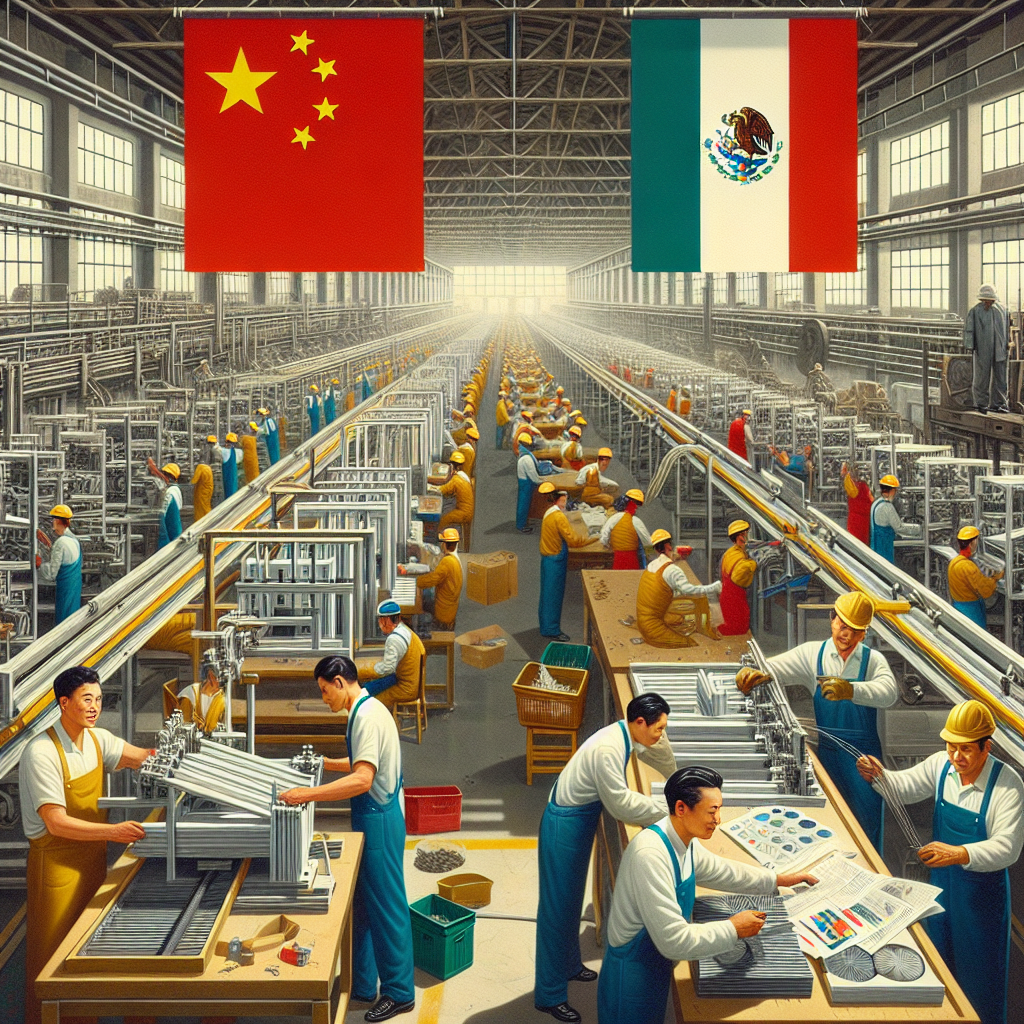
Chinese Companies Using Mexico as Backdoor to US Market
Chinese companies are increasingly using Mexico as a gateway to the US market, taking advantage of its strategic location and bypassing trade restrictions.


Chinese companies are increasingly using Mexico as a gateway to the US market, taking advantage of its strategic location and bypassing trade restrictions.
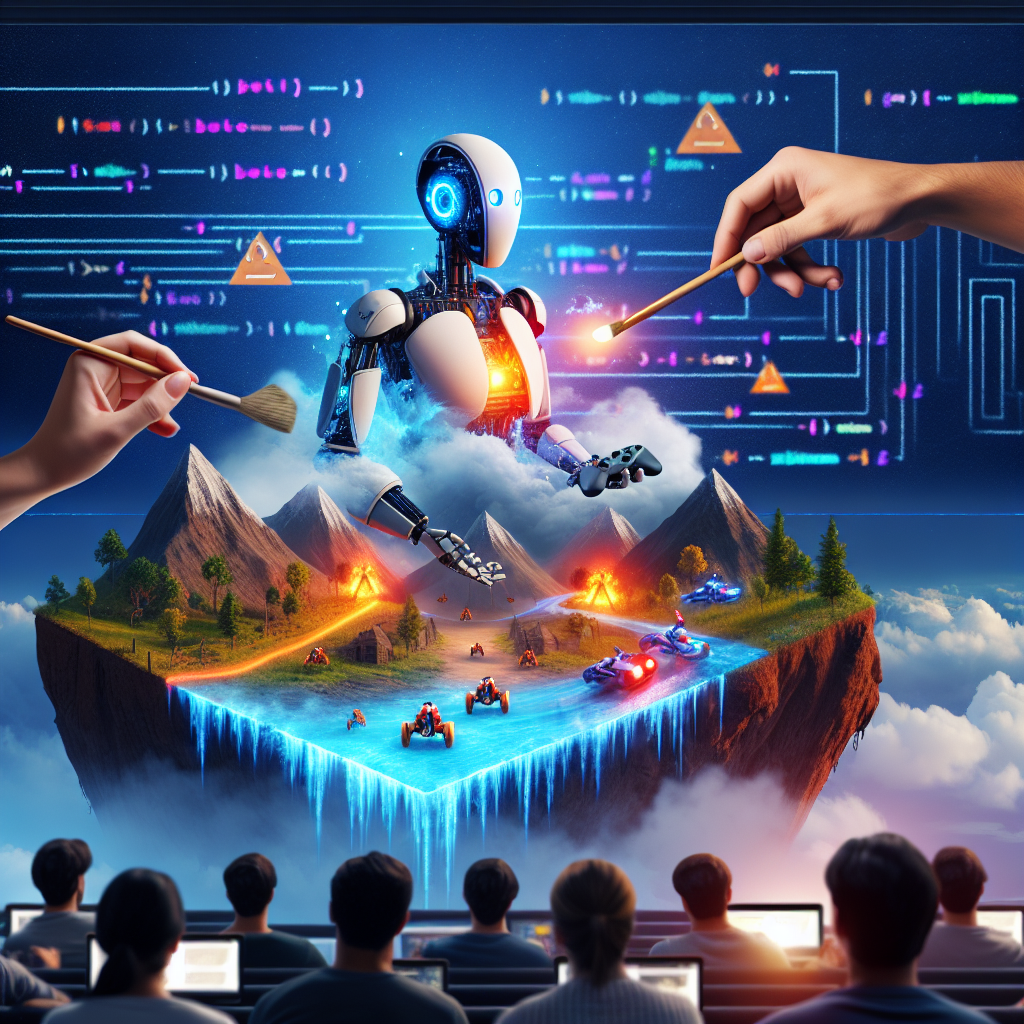
AI is revolutionizing the computer games industry by reducing costs, enhancing creativity, and personalizing the gaming experience.
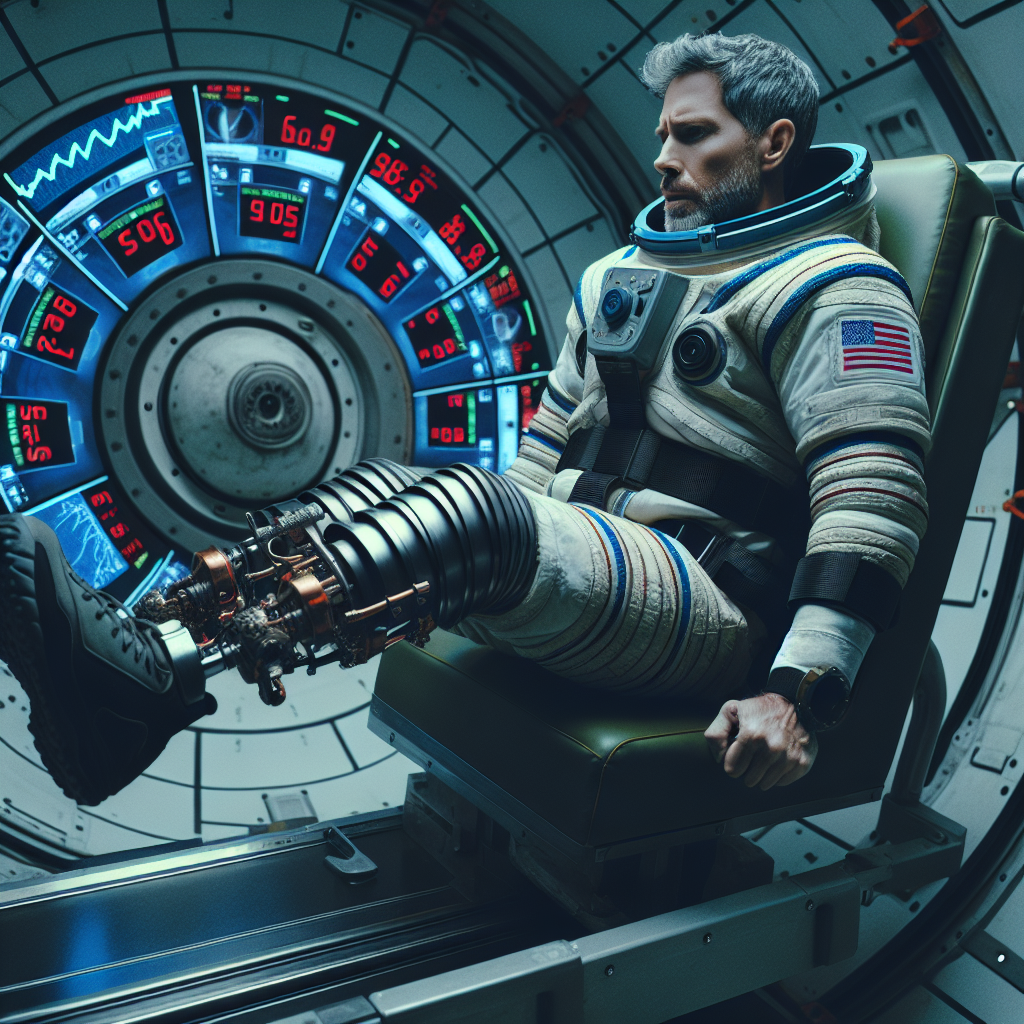
Former Paralympian John McFall is working with the European Space Agency on a groundbreaking study to determine if it is feasible for someone with a physical disability to live and work in space.

Safety concerns over Indian spices arise as investigations reveal potential contamination with cancer-causing pesticide.

A new study suggests that using body fat percentage instead of BMI may provide a more accurate measurement of obesity.

The government of England has announced the largest ever expansion of wild swimming areas, but concerns remain over water cleanliness.

Renowned Australian doctor Richard Scolyer remains cancer-free a year after receiving a groundbreaking treatment for glioblastoma, a highly aggressive form of brain cancer, based on his own research on melanoma, offering hope for future clinical trials.
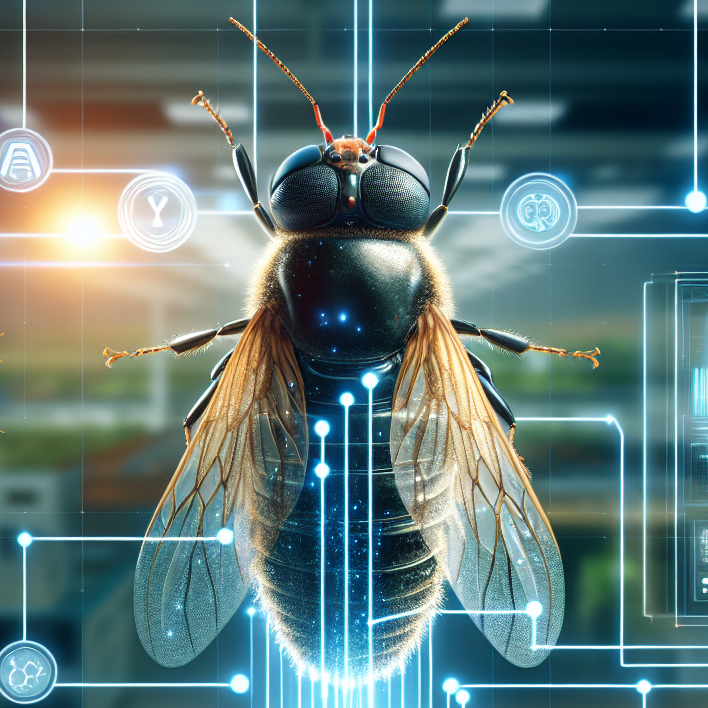
Insect farming companies are turning to artificial intelligence (AI) to lower costs and maximize production, but some aspects of the process still require a hands-on approach.

Sweden’s rise in billionaires can be attributed to its thriving tech scene, low interest rates, and tax policies that favor the wealthy, but there is a lack of public debate about the inequality it represents.

Two MIT brothers arrested for stealing $25 million in cryptocurrency in a 12-second heist, raising concerns about blockchain security.

Canada is facing a high number of wildfires due to climate change, prompting the need for urgent action.
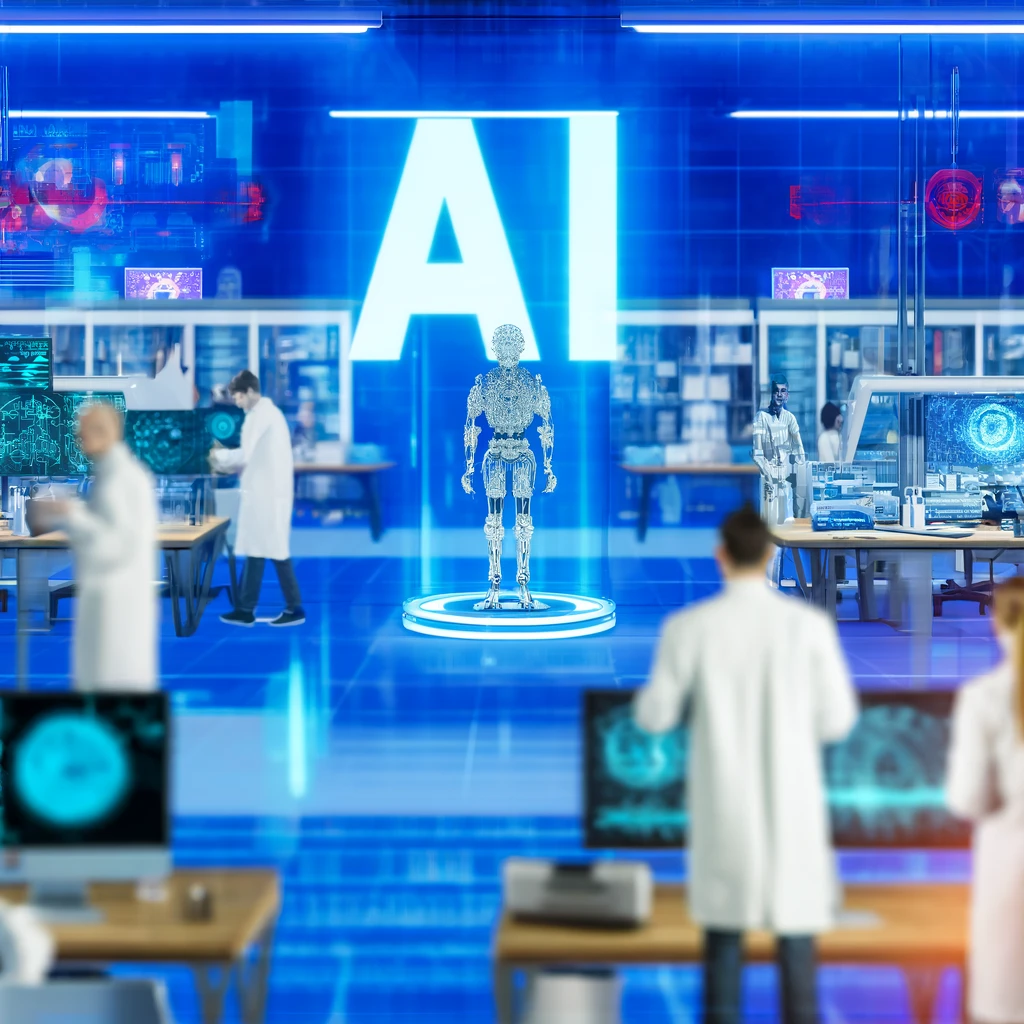
TV production companies are exploring the use of AI to generate ideas for new shows, but some experts argue that AI can never replicate the spark of human creativity.

A major storm system hits central US, bringing tornadoes, heavy rain, and golf ball-sized hail.

Households in the UK are hoarding unused electricals and broken tech, with over 880 million items estimated to be held in homes, prompting calls for increased recycling and reducing electronic waste.
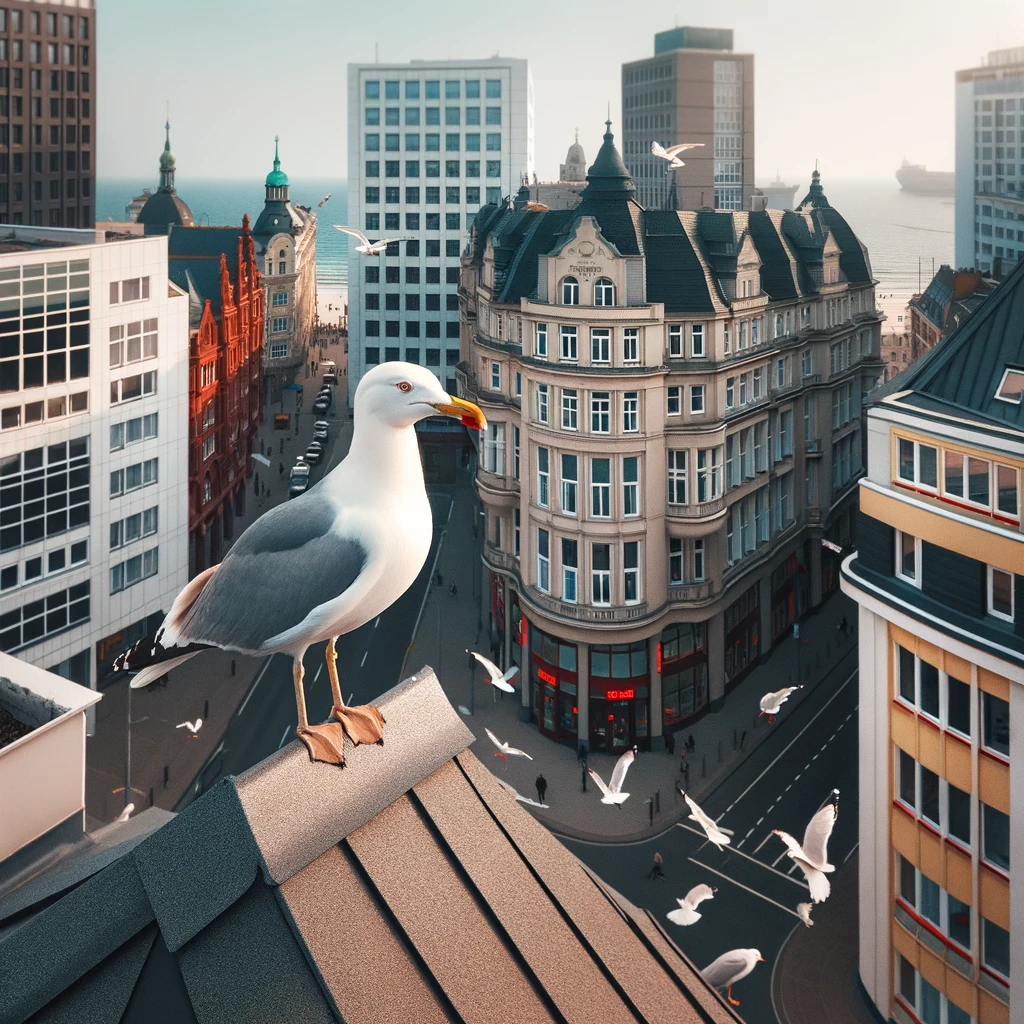
Seagulls are being driven into urban areas due to the loss of natural spaces, and scientists are urging people to learn to coexist with them.
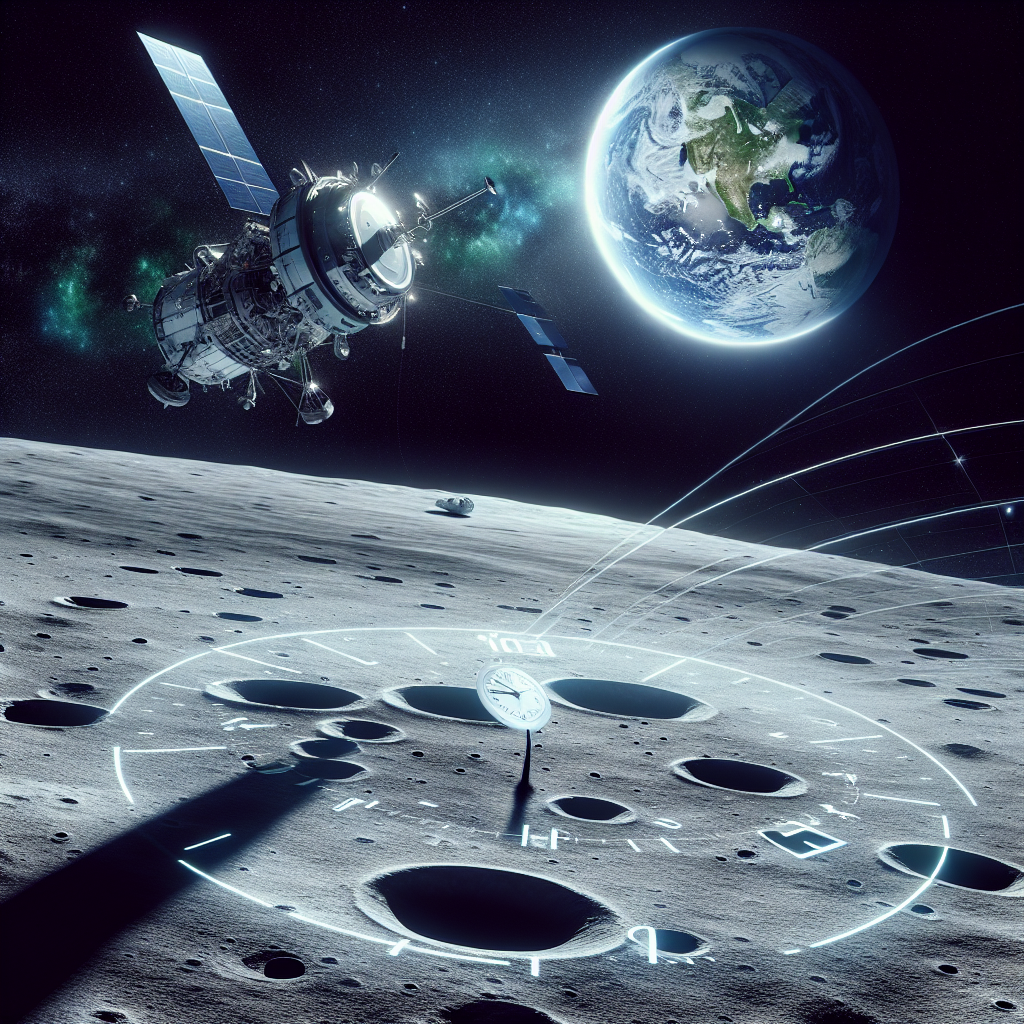
White House urges NASA to develop a new time zone for the Moon to synchronize spacecraft and coordinate lunar missions.

The glass container industry is undergoing a sustainability revolution, considering the switch to electric furnaces and exploring ways to reduce carbon emissions.

Sir Demis Hassabis, co-founder and CEO of Google’s DeepMind, believes that video games can boost creativity in young people and encourages parents to support their children’s creative use of technology.
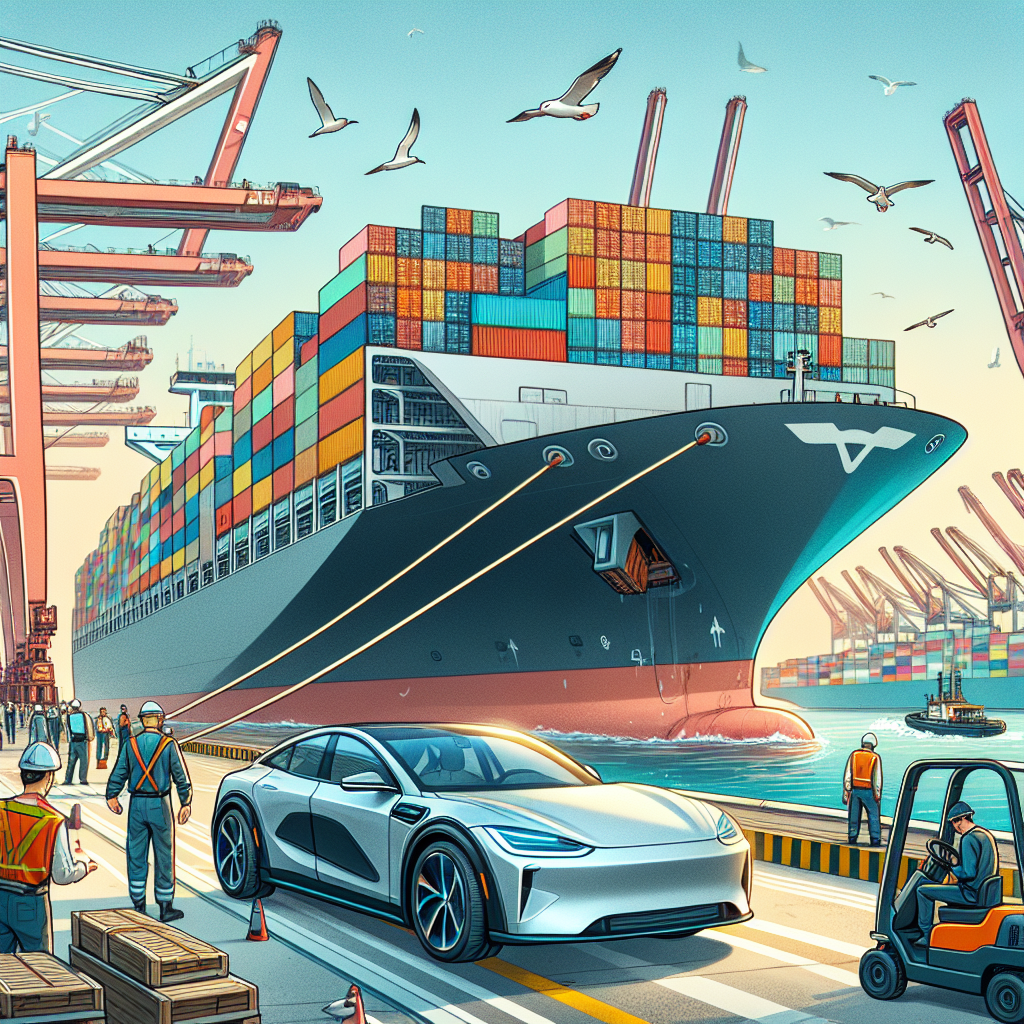
Tesla’s decline in deliveries in the first quarter of 2024 has been described as a “disaster” for the company, with factors such as a fire at its European factory and weakened demand in key markets contributing to the decline.
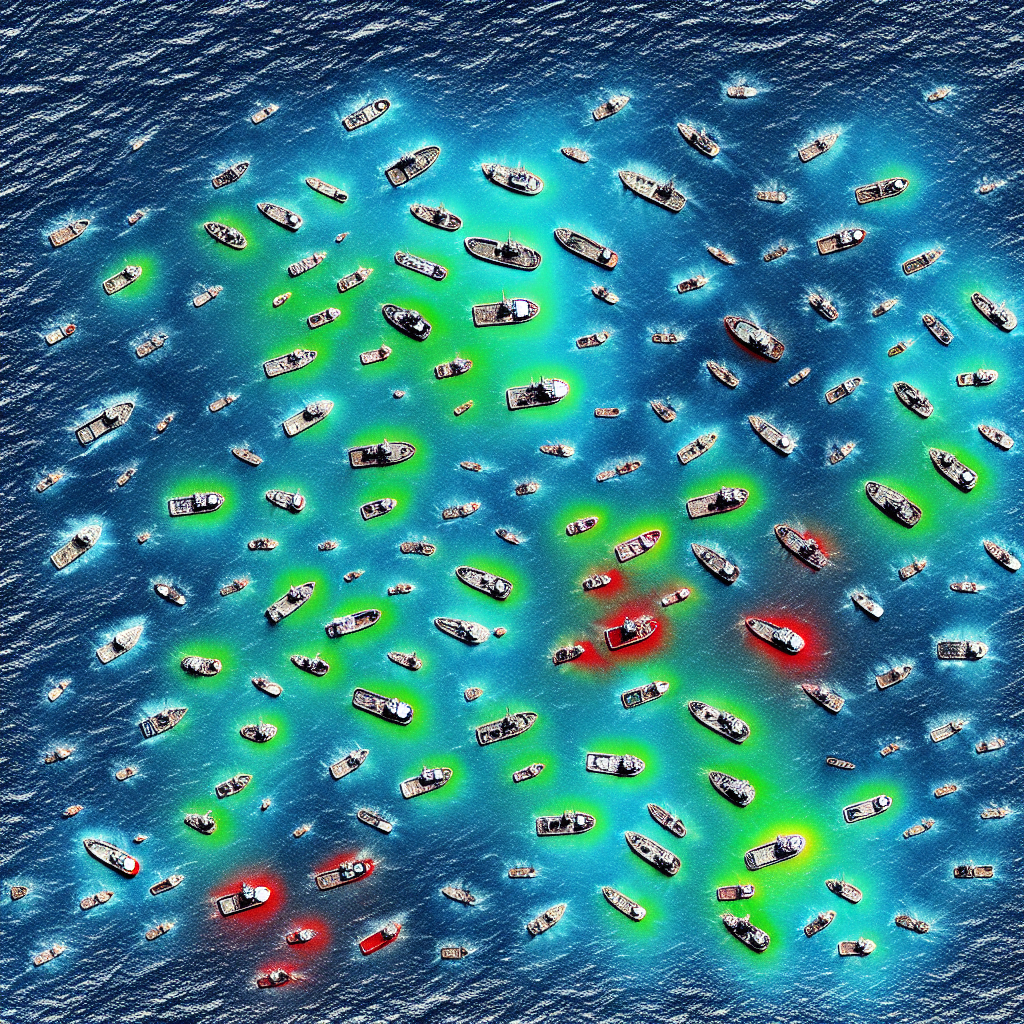
Illegal fishing is a global issue, but organizations are using AI and underwater robots to combat it.

Blue LEDs have revolutionized lighting and visual displays, enhancing fan experiences and transforming landmarks with stunning light shows. Ongoing research and development promise even more advancements in LED technology.
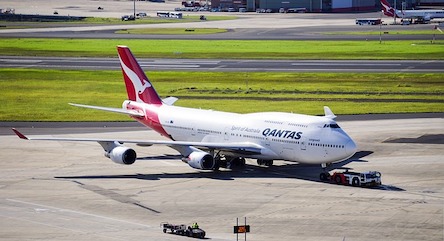
Woman arrested after breaching security at Canberra airport by running up to a plane on the tarmac.

Hotels are using technology like monitoring devices and trained dogs to detect and prevent bedbug infestations.
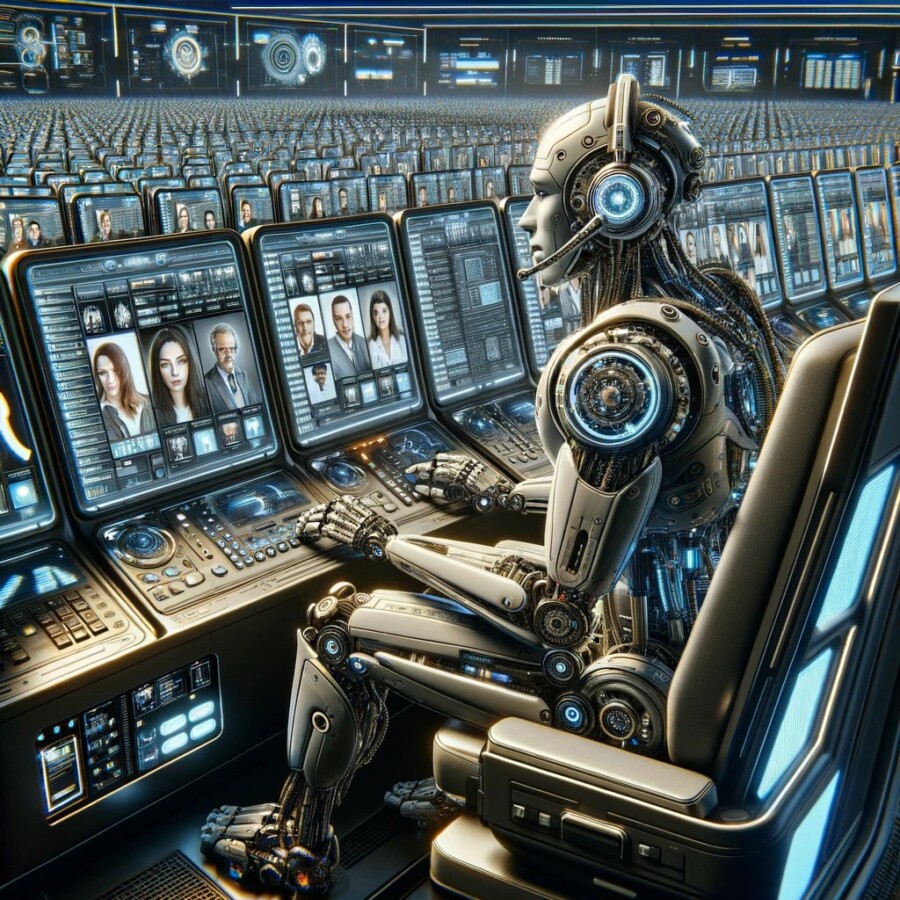
Fake robocalls impersonating President Biden have been circulating in New Hampshire, urging voters to skip the primary election, prompting an investigation to determine the source.

Netflix is raising its subscription prices in the UK despite recent success, as it aims to protect profits and deal with competition and delays in new releases.

Firefighters in Minnesota save stranded deer on frozen lake, showcasing their bravery and compassion.

14-year-old Australian student prevents school bus from crashing into petrol station, hailed as hero.

S&P 500 hits new record high on tech strength and economic optimism, signaling a bull market.

John Oliver’s controversial campaign helped the pūteketeke, or Australasian crested grebe, win New Zealand’s Bird of the Century title in a record-breaking poll.

Tech entrepreneur Ian Leaman faced a costly challenge securing the domain name for his new AI start-up.

Makhana cultivation in northern India undergoes a transformative shift, boosting farmer income and global exports.
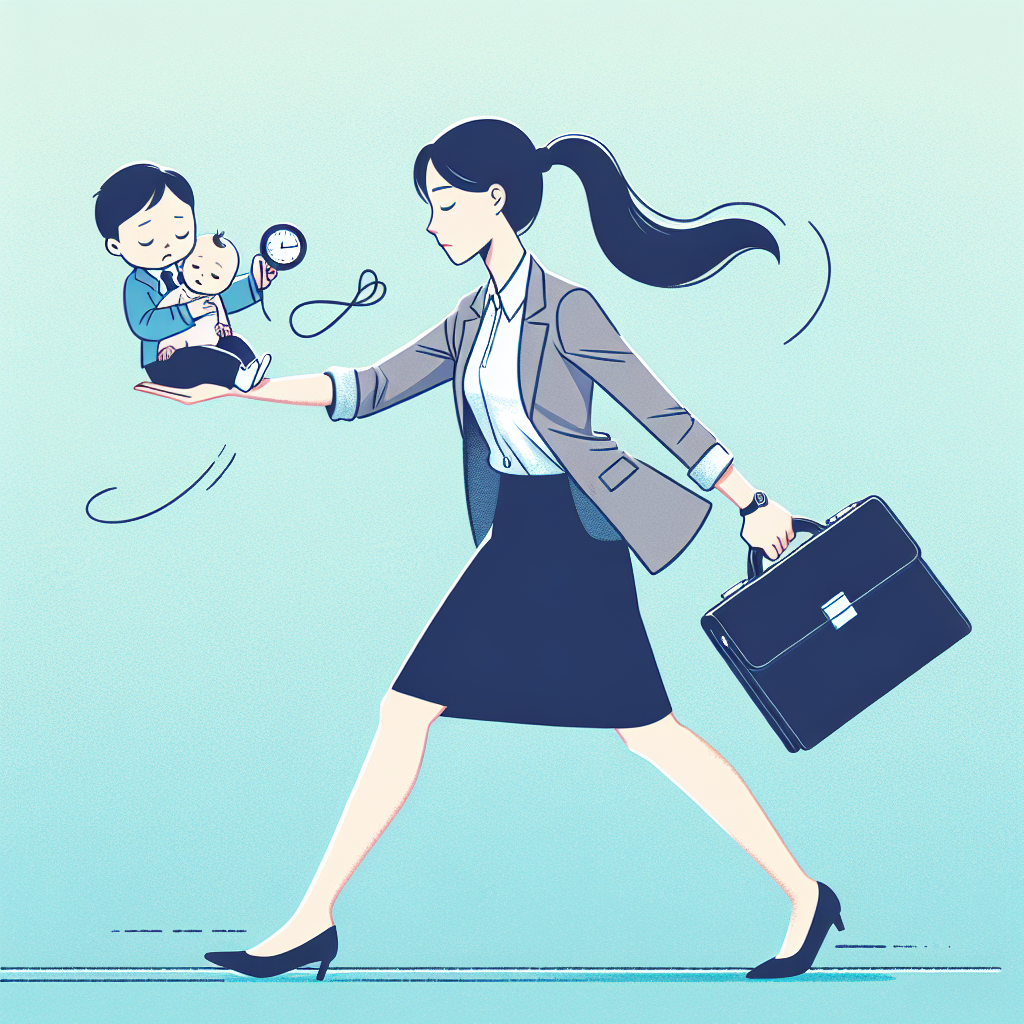
South Korea’s low birth rate is driven by the difficulty in finding suitable partners, demanding work culture, and high cost of living and education.

England’s hedgerows, which stretch almost ten times around the Earth, are a valuable resource that provide food and shelter for wildlife and store large amounts of carbon, and a new map created through aerial laser scanning will help identify gaps in the hedgerow network that can be filled in to expand and protect these important features of the landscape.
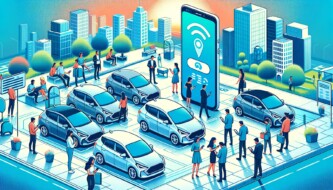
London-based start-up Karshare, a car-sharing platform similar to Airbnb, faced multiple challenges including the impact of Covid-19, geopolitical conflicts, and criminal activity, highlighting the need for start-ups in the sharing economy to anticipate vulnerabilities in their systems. Despite the setbacks, founder Andy Hibbert remains resilient and is exploring new opportunities in sustainable farming technology.

Jimmy Cooper, an 80-year-old nurse, has no plans to retire and finds his job in the intensive care unit very satisfying.


영국 랭커스터 대학교(Lancaster University)에서 한국인 영어 학습자분들을 대상으로 새로운 연구 프로젝트를 진행합니다. 전 과정 온라인으로 진행되어 어디서든 편하게 참여하실 수 있습니다. 여러분의 소중한 참여로 한국인의 영어 사용 방식을 알아보는 흥미로운 연구가 완성됩니다.
🎁 참여 혜택:
– 원어민 연구원과의 1:1 회화 연습
– 실전 영작 연습 & 맞춤형 영어 피드백 리포트
– 커피 기프티콘 총 3잔 선물! (첫 세션 후 1잔, 마지막 세션 완료 후 2잔 더 드려요! ☕☕)
📅 참여 방식: 총 2회의 온라인 세션 (Zoom 등을 이용, 각 세션당 약 60~80분 소요) 말하기와 쓰기 활동이 섞여 있어 부담 없이 즐겁게 참여하실 수 있습니다.
✅ 대상: 영어 실력에 상관없이 참여를 희망하는 18세 이상 한국인 누구나